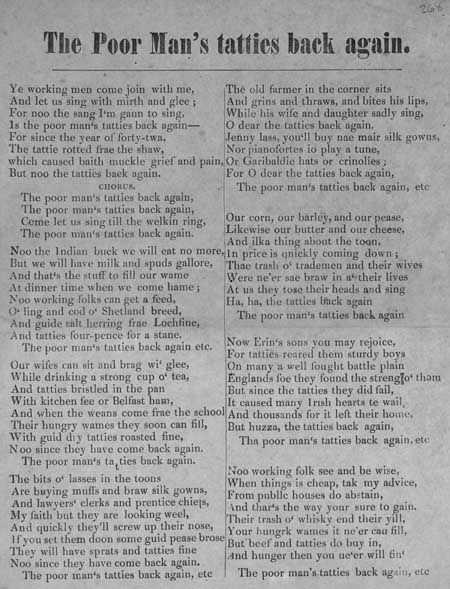Commentary
Verse 1: 'Ye working men come join with me, / And let us sing with mirth and glee; / For noo the sang I'm gaun to sing, / Is the poor man's tatties back again - / For since the year of forty-twa, / The tattie rotted frae the shaw, / which caused baith muckle grief and pain, / But noo the tatties back again.' The sheet contains no publication details. This ballad appears to be a slightly tongue-in-cheek celebration of the potato. The author visualises a nation rejoicing and eating better than it ever has before, because there has been a good potato harvest. The roots of this humorous song are very serious, however. In 1842 a blight began to take hold of potato crops in North America, and by 1845 it had spread to the British Isles. In areas such as Ireland, and the Scottish Highlands, where the livelihood and diet of people were heavily dependent on potatoes, the effects of successive crop failures were devasting, causing many deaths and increased emigration. There were also failures of the potato harvest in Britain and Ireland in the 1870s. Early ballads were dramatic or humorous narrative songs derived from folk culture that predated printing. Originally perpetuated by word of mouth, many ballads survive because they were recorded on broadsides. Musical notation was rarely printed, as tunes were usually established favourites. The term 'ballad' eventually applied more broadly to any kind of topical or popular verse.
View Transcription | Download PDF Facsimile
|
 |
Probable period of publication:
1860-1880 shelfmark: L.C.Fol.178.A.2(268)
 View larger image
View larger image
|


